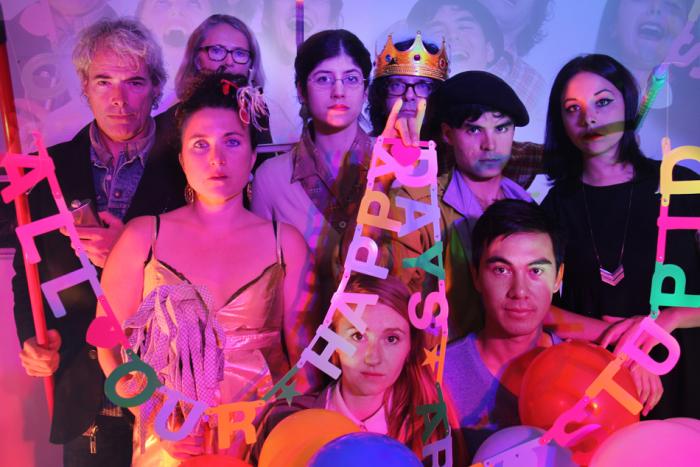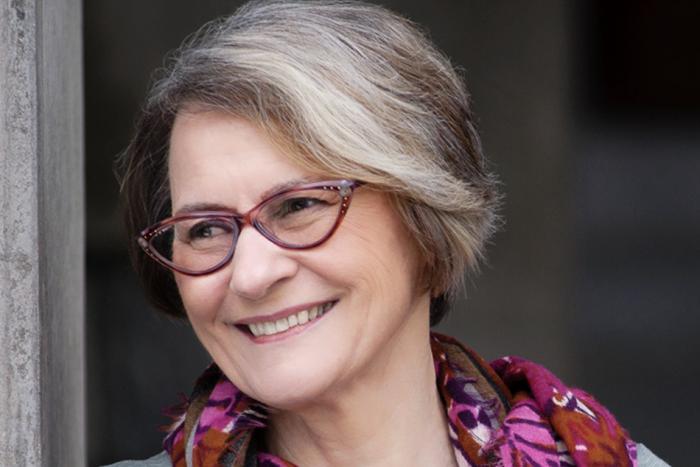“Don’t stuff me in your wall.”
Two years ago, I went on a third date with a nice guy whose only major crime was wanting to buy me dinner. While we ate, he suggested our next date be at his apartment. He offered to make me a lobster. A normal female would have seen this as the simple ploy to have sex (or, at the very least, some heavy petting) that it was. Instead, I asked him not to murder me.
“I just thought I could make you dinner. I like to cook.”
“That’s nice. I just don’t want you to brick me up inside one of the walls of your apartment. No one will find me for decades.”
“What?”
He was a conventionally attractive, well-kept, showered, white male between the ages of 18 and 40, and gave no indication that he was a murderer. Over the course of our dates and his eager attempts to please, though, he did absolutely nothing to convince me he was not Ted Bundy incarnate. His good wine choices, his insistence upon pulling out the chair for me, his flossed teeth—look, Ted Bundy was charming. Ted Bundy was handsome. Ted Bundy slaughtered more than 30 women.
I forced him to literally say the words, “I will not brick you up in my apartment.” Eventually I decided that, fine, I would risk being murdered if it meant letting someone make me lobster and buy me wine and fill me with butter and salt. My self-preservation instincts only go so far, often coming to a halt around the time food becomes a factor.
And yet, my fixation on serial killers and psychopaths—a sinister interest at best, an irrational fear at worst—remains. While most teenage girls my age were watching The Hills, I was busy brushing up on what John Wayne Gacy was doing in the mid ‘’70s (a hint: it was murdery!) and reading about the Karla Homolka-Paul Bernardo trials.
Finding yourself fascinated by true crime isn’t particularly noteworthy; from Helter Skelter, to news coverage of Israel Keyes, to A&E’s docu-series on serial killers, it has, for years, been a multi-million-dollar industry. But my interest felt more like a psychological aide than a simple interest in the macabre: I started reading about killers not just because it was creepy or intriguing, but because it seemed somehow instructive to learn about people who lacked even the most basic empathic properties. When I moved across the country and lived alone for the first time at 17, I ramped up my consumption. I watched documentaries on Andrew Cunanan absent-mindedly while I did household chores; I fell asleep to reading about the Son of Sam; I memorized all those jagged points in Richard Ramirez’s face.
This, I don’t think, is normal. It was terrifying and made me surprisingly afraid to go outside and be around strangers. Why risk the streets when some lunatic could just up and stuff me into his van next and turn my skull into an ashtray, pin my nipples onto a belt? I don’t need that!
But it was also comforting. Learning these gruesome details felt like building armor against very real things I was afraid of: being kidnapped, being raped, being tortured. My feeling was that if I could at least learn enough about these kinds of people—psychopathic serial killers who maybe have a penchant for round-hipped brown women—I could protect myself even slightly more than the average pedestrian walking late at night.
“That sounds a little delusional,” Dr. Scott Bonn tells me. Bonn is a criminologist and author of the forthcoming Why We Love Serial Killers (Sky Horse Press, 2014). He responds to my theory that maybe I’m better educated with, to put it generously, polite laughter at my preposterous self-inflation. “In pop culture, at least in the United States, there’s very little distinction between Hannibal Lecter and Jeffrey Dahmer.” While I may think I know something about Jeffrey Dahmer, I really don’t: I just know the caricature painted of him, long after his death. He had a couple severed penises in his apartment, sure, but he’s no Anthony Hopkins.
According to a 2010 study from Social Psychological and Personality Science, though, I’m not entirely off: it suggested that women are more likely to gravitate towards true crime, if only because it may provide survival strategies of sorts. At the same time, it posited that such an intense interest could also function as part of a cycle that perpetuates the fear of the unknown. I may feel secure in the knowledge I glean from reading up on Ed Gein, but I’m still uncomfortable with the knowledge that an Ed Gein even existed.
I also feel guilty for taking an interest in something that so obviously brings attention to the worst kinds of people while ignoring the innocent. “Everybody knows the name Ted Bundy,” Dr. Bonn says. “Most people couldn’t name one of his victims. There’s a desensitization that happens.” It’s not rare for serial killers to develop fans and followers: Richard Ramirez had girls follow him in court, and he even got married after receiving the death penalty. After Luka Magnotta was arrested for the murder of Lin Jun, plenty of people ended up dedicating online fan pages to him, insisting he was just a misunderstood and sensitive soul.
This all feeds into the greater monster. Dr. Bonn remembers a story Dennis Rader told him about working as a compliance officer for Park City, Utah, before he was captured: he went to city hall to get his badge after he passed his exams, and was given a tour of the police’s BTK war room. “He said it was the greatest rush of his life,” Dr. Bonn says. In hindsight, it’s really no wonder he gave himself his own nickname and sent taunting letters to the police and the newspapers; that kind of attention is intoxicating.
But for the gawkers whose interest never veers into outright obsession, professional or otherwise, there can be a limit. Karla Homolka and her role in the murders of at least two women was the case of the ’90s in Canada; people were glued to what fresh hell she and her horrific husband Paul Bernardo unleashed. But in 2012, when Paula Todd wrote Finding Karla, an ebook following up on Homolka’s domestic life in Guadalupe with her new husband and three natural-born children, the public resisted. “There was a backlash from people who said, ‘Don’t remind us. Don’t bring this up. We don’t want to think about her,’” says Todd, the author of the forthcoming Extreme Mean. “There was a smaller group that said she’s been picked on, she’s a victim, she should be left to live her life.”
Perhaps those angriest with Todd for dredging up Homolka’s history, though, were reacting more out of fatigue with her specific story than disgust with the concept; there’s certainly no shortage of people eager to study and stare at humanity’s anomalies. “It appears to be natural instinct for human beings to pay specific attention to things that break the mold,” Todd says. “We want to believe that our neighbors, particularly these young and seemingly charming people, are not going to kill us.”
Still, I can only get so close to these stories. The Luka Magnotta case continues to make me uneasy. I managed to avoid the infamous video of him killing Lin Jun until I was doing research for an unrelated article about the deep web. I found it on a database of snuff videos, five minutes into my search. I spent the rest of the day feeling queasy, reading BuzzFeed lists.
Which might be why I prefer movies and documentaries that end with the killer in jail, either awaiting a death sentencing or reflecting on his crimes. Zodiac gave me the chills because there’s no clean conclusion to it. I can watch endless docs on the Son of Sam because I know he lives at the Sullivan Correctional Facility in Fallsburg, New York, and will for the rest of his life.
This routine sometimes feels like picking at a not-yet healed scab, or pressing on a fresh bruise—walking right up to something and saying, “This isn’t so scary.” It’s as if I can put just a drop of evil in me and immunize myself against the gulf. But there’s that cycle, that perpetuation, the assumption that of course, I’m doomed to be a victim, that people are out to get me, that there’s always something nefarious waiting on the other side.
Before I entered my date’s apartment, I repeated my intention to not be killed. He nodded and offered me a glass of wine and suggested that maybe I have a seat and shut the hell up for a second. We had a nice time. He boiled two of the biggest lobsters I had ever seen. I knocked on a few of the walls in his place and none of them seemed hollow. It seemed like a good sign.
He didn’t try to brick me up in his apartment. Bittersweet, I know. But if he did, at least I would have been ready for it.





